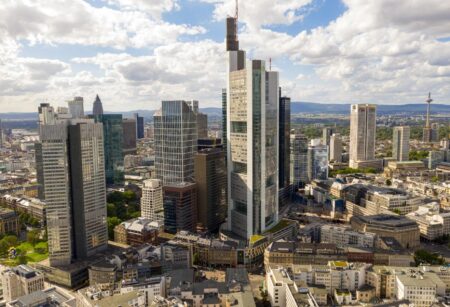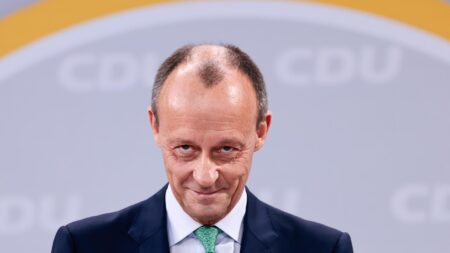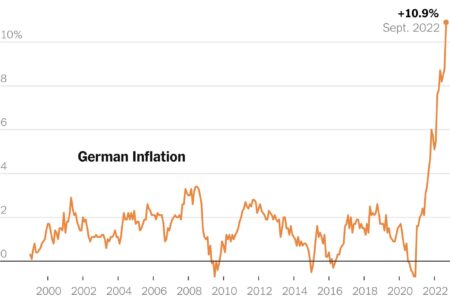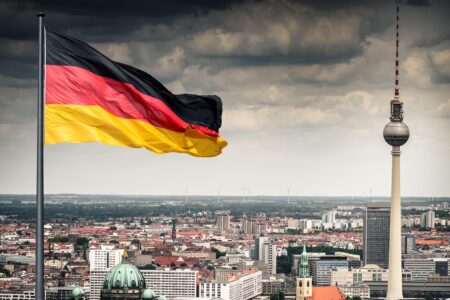A new study reveals that Indians lead the pack as the highest earners among full-time employees in Germany, outpacing other major expatriate groups. This highlights the remarkable economic impact of the Indian workforce throughout the country
Browsing: German economy
Germany is heading toward its largest budget deficit since reunification, the Bundesbank has warned. Skyrocketing energy costs and escalating economic challenges are driving this widening gap, sparking concerns over the nation’s fiscal health
Germany’s hotly debated pension package narrowly passed a crucial CDU test vote, marking a turning point amid intense party clashes. Crafted to protect retirement benefits, the plan now faces major political challenges on the road ahead
Germany’s Finance Minister Merz spotlights encouraging signs of economic recovery, but the IMF warns that deep-rooted structural challenges and ongoing global uncertainties continue to restrain the country’s mid-term growth potential
Germany is grappling with the unstoppable rise of US tech giants, sparking urgent demands for stronger digital sovereignty and a daring surge in homegrown innovation to secure its place in the fiercely competitive global tech landscape
A recent uproar around a coffee startup has catapulted Germany’s venture capital scene into the spotlight, igniting lively debates about its appetite for risk and commitment to fueling groundbreaking innovation, Financial Times reports
German business confidence has surged to its highest point since 2022, igniting renewed optimism as supply chain hurdles ease and inflation holds steady. Experts see this upswing as a strong sign of hope for Europe’s largest economy
German business activity soared to its highest level in over two years this October, driven by strong expansion in both manufacturing and services, according to the latest Purchasing Managers’ Index (PMI) data released by Reuters
Friedrich Merz is testing Germany’s patience as his conservative leadership faces mounting criticism over stalled reforms and escalating internal party conflicts. His approach ignites fierce debate about the CDU’s future direction
Deutsche Bank calls on Germany to unleash its full fiscal strength to invigorate the economy during these uncertain times. Experts highlight that strategic government support is crucial to safeguard the bank’s stability and drive its growth forward
Germany’s services sector faced a surprising setback in August, slipping into contraction and signaling a rare stumble amid mounting economic uncertainty. According to Bloomberg, this downturn may be a warning sign of tougher times ahead for Europe’s largest economy
Porsche AG is set to exit Germany’s DAX index after less than three years, Bloomberg reports. This shift underscores evolving market dynamics and could reshape the luxury automaker’s attractiveness to investors
Germany’s business outlook has soared to its highest level since 2022, igniting fresh optimism among companies as supply chain hurdles fade and global demand gains momentum, Bloomberg reports
Germany’s economy is contracting more rapidly than expected, sending shockwaves through global investors. A steep drop in industrial production, coupled with weak exports, signals potential ripple effects that could impact markets worldwide
Germany’s Finance Minister Friedrich Merz voiced doubts about a quick breakthrough in EU-US trade negotiations and warned that without stronger transatlantic trade relations, the German economy could encounter significant hurdles, Reuters reports
Berlin is set to unleash a massive €4 billion in subsidies aimed at supercharging Germany’s heavy industry. This bold initiative is designed to fuel economic growth and protect jobs, positioning the sector to thrive amid rising global challenges, reports the Financial Times
Rising living costs and stagnant wages are squeezing German households like never before, turning everyday expenses into a daunting challenge. For countless workers, simply covering the basics has become a daily battle, exposing the growing economic strain tightening its grip on the nation
German export sentiment has taken a hit amid looming tariff threats, the Ifo Institute revealed on Thursday. Escalating trade tensions are stirring uncertainty among exporters, casting a shadow over growth prospects
Germany’s inflation rate held firm at 2.1% in May, reflecting steady consumer prices amid ongoing economic challenges. This encouraging data sparks cautious optimism for Europe’s largest economy. (NYSEARCA:EWG)
As Trump meets Merz, Germany finds itself at a pivotal crossroads, navigating economic turmoil and rising geopolitical tensions. Bloomberg delves into how this critical encounter underscores Berlin’s fragile position amid the shifting tides of global power



















